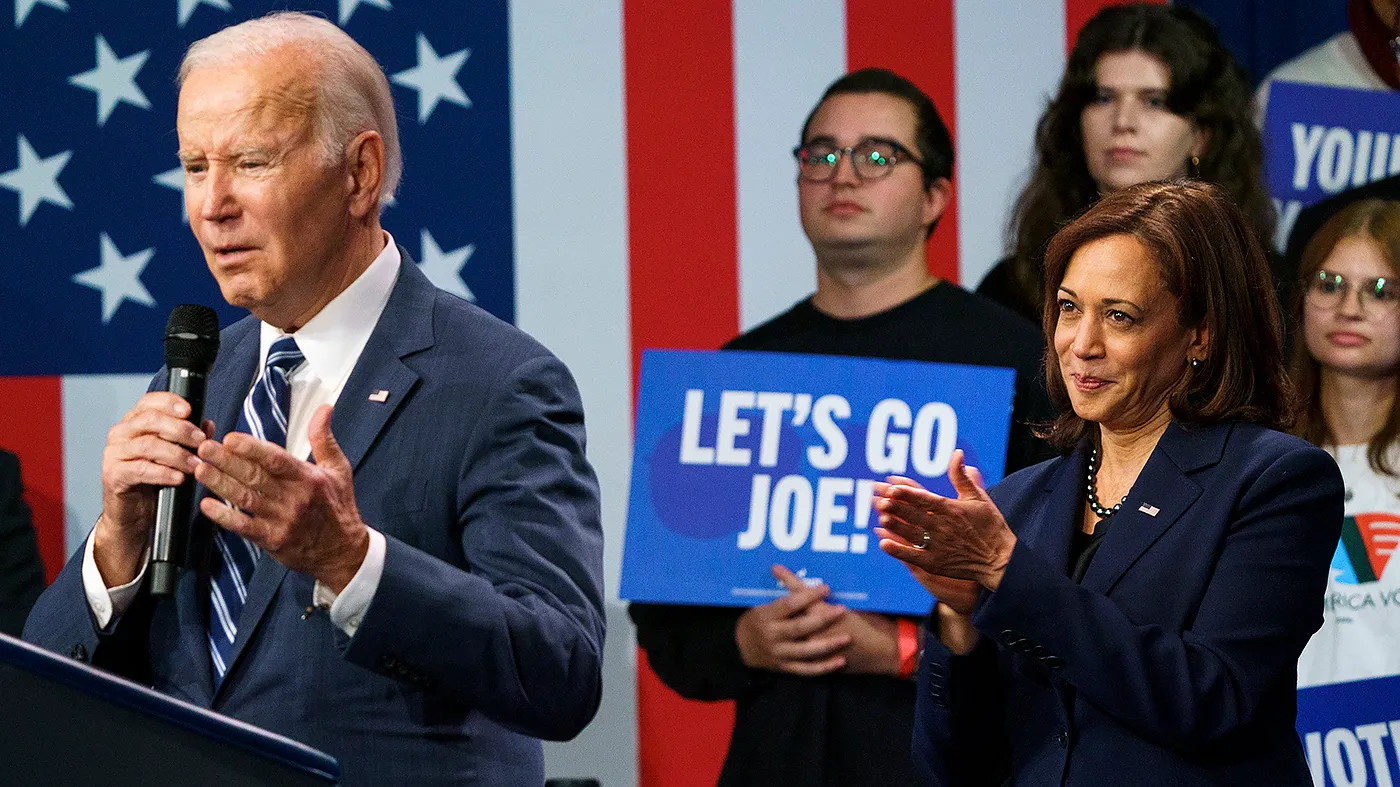Donald Trump’s road to victory in the 2016 presidential election began in March 2011, when he first publicly questioned the origin of Barack Obama’s birth. He soon became the leading voice of the racist “birther” conspiracy theory, forging an unbreakable bond with a large portion of the Republican base that would later propel him to the presidency.
Then-Illinois state Senator Barack Obama may not have known it at the time, but his 2002 speech at a Chicago rally opposing an invasion of Iraq set his course to the presidency. Six years later, Obama won his party’s nomination over more experienced Democratic competitors who had voted for the war, and then he bested a Republican military hero in the general election.
So, who took the pivotal steps in 2023 that set them on the path to the presidency in 2028?
It’s not too soon to ask, though that doesn’t make the exercise easy. What appears meaningful can end up forgotten; what seems out-of-step today may look ahead-of-its-time tomorrow. Regardless, what happens five years or more before a presidential election has the potential to set determinative events into motion.

With the 2024 matchup all but set, we’re looking ahead. There’s a large pool of ambitious presidential wannabes out there, and they all spent this year in ways that could, just maybe, place them at the top of the ticket in 2028.
On July 20, the national media seized on news that Florida’s Board of Education approved standards that directed teachers to discuss how, in antebellum America, “slaves developed skills which, in some instances, could be applied for their personal benefit.”
The very next day, Vice President Kamala Harris rushed to Jacksonville and thundered, “They want to replace history with lies.” Slavery,” she added, “involved rape. It involved torture. It involved taking a baby from their mother.”
Florida Governor and presidential candidate Ron DeSantis shot back and fueled days of controversy, clearly hoping a protracted tangle with the polarizing vice president would raise his stock with GOP primary voters. He proposed a debate with Harris. She returned to Florida and dismissed the offer, saying, “There is no roundtable, no lecture, no invitation we will accept to debate an undeniable fact.” DeSantis took a beating in the press.
Before the slavery controversy, DeSantis was polling above 20 percent in most national primary surveys. Afterward, he never reached 20 percent again in any national poll.
Harris has suffered another year of pundits opining about Joe Biden’s “Kamala Harris problem,” with some suggesting she should be bounced from the ticket. Conservative media operations continue to push out-of-context video clips, claiming Harris is spouting cringe-inducing “word salad.” But her drubbing of DeSantis showed she hasn’t lost the ability to rally elements of the Democratic base and wage effective rhetorical combat against Republicans.
Gretchen Whitmer’s Policy Blitz
Michigan’s Gretchen Whitmer notched a slew of impressive victories in her first year as governor with a Democratic-controlled legislature, signing progressive legislation on abortion rights, worker rights, voter rights, gun safety, health care and the environment. In 2023, Whitmer could boast that she moved state policy from conservative to liberal farther and faster than any other sitting governor in the country.
And she started going national, launching a new “Fight Like Hell” political action committee to fund Democratic candidates in the 2024 election. The first set of endorsements went to eight House incumbents, including Rep. Steven Horsford from the early primary state of Nevada.
Next year, Joe Biden will be visiting Michigan frequently, touting his partnership with Whitmer to help the auto industry benefit from the electric vehicle transition — a priority for both, but one that is not without political risk. Pressure will be on Whitmer, the only 2028 prospect serving as national co-chair of the Biden-Harris campaign, to keep the state blue.
Andy Beshear’s and Roy Cooper’s Survival Skills
Democratic governors with Republican legislatures can’t sign nearly as much progressive legislation, but mere survival provides cache. Andy Beshear punched his ticket to the 2028 bracket by winning reelection in deep red Kentucky, particularly with the help of a successful abortion rights message.
North Carolina’s two-term Gov. Roy Cooper had a rough year, after a Democratic state House member defected in April and gave Republicans a supermajority to override Cooper’s veto of a 12-week abortion ban. However, just before that happened, following years of battling resistant Republicans, Cooper finally wrangled a bipartisan Medicaid expansion bill, extending health insurance coverage to an estimated 600,000 people — not a bad capstone as he wraps his final year in office in 2024.
Wes Moore’s and Josh Shapiro’s Fast Start
Two new Democratic governors were able to quickly plant seeds for a future presidential bid in 2023. Maryland’s Wes Moore, only the third African American in U.S. history to be elected governor, may be the only 2028 prospect who already has crafted a signature slogan: “Service Will Save Us.” On the power of that message, Moore swiftly enacted the first state-run public service year program for recent high school graduates, who can get paid for a year of community service before enrolling in college or pursuing other work.

